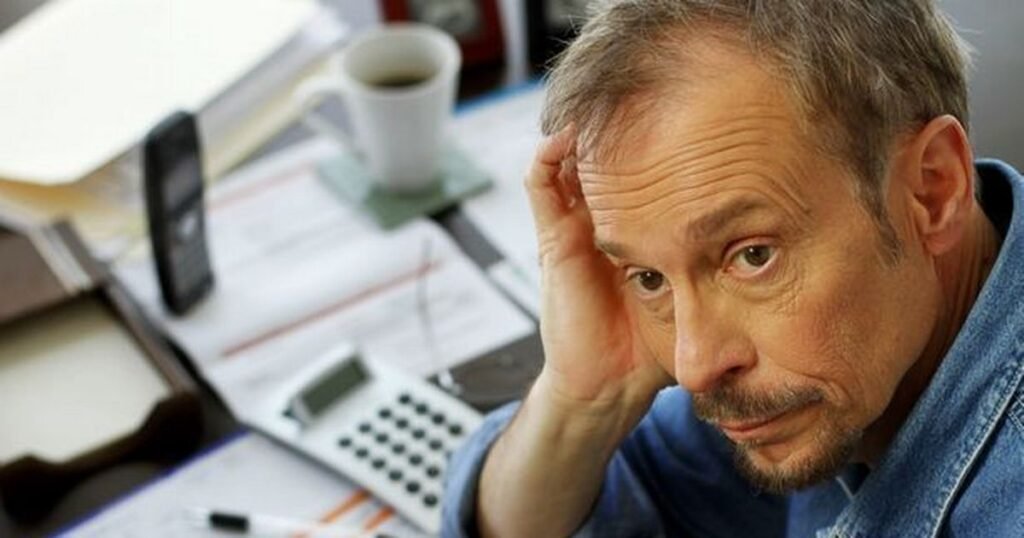The annual uprating will see the full New State Pension creep closer to the £12,570 Personal Allowance threshold.

State pension age to be reviewed by UK Government amid fears that 45% of workers are not saving
People on the full New State Pension could see payments rise by over £500 next year under the Triple Lock as earnings growth (4.7%) outpaces the current rate of inflation (3.8%). The increase under the earnings growth would see weekly payments of the New State Pension rise to up to £241.05 and £184.75 for those on the Basic State Pension.
Under the Triple Lock, State Pensions increase each year in-line with whichever is the highest of average annual earnings growth from May to July, Consumer Price Index inflation rate (CPI) in the year to September or 2.5 per cent.
However, finance experts warn the projected rise will see nearly 9 million pensioners pay tax in retirement. This is because under a 4.7 per cent uprating, the full New State Pension will be worth £12,534 over the 2026/27 financial year, but the Personal Allowance will remain frozen at £12,570 until April 2028.
READ MORE: People over State Pension age due up to £524 in one-off payments this winterREAD MORE: Pensioners could be exempt from paying TV licence fee under planned review
Around 8.4 million people receiving the Basic State Pension will continue to get significantly less, around £9,634 a year, but could also find themselves edging closer to the tax threshold.
Amid growing concern over the long-term sustainability of State Pension increases and the tax implications for retirees, Derence Lee, Chief Finance Officer at Shepherds Friendly shares his expert insight into what this means for pensioners and those approaching retirement.
Lee said: “Due to the extremely high levels of inflation the UK has experienced since 2020, State Pensions have been increasing at a rate that some experts believe to be unsustainable in the long term.
“With pensions expected to surpass the frozen tax-free allowance limit next year, which will remain unchanged by the government until 2028, more retirees will be pushed into the tax-paying bracket. As a result, pensioners should begin to take into account that they may soon need to pay income tax on their pensions should no changes be made to current status-quo.
“Whilst the Triple Lock has been helpful in ensuring retirees’ incomes keep up with the cost of living, taxing pensioners could have significant financial implications, particularly for those who rely heavily on their pensions to cover essential living costs and make ends meet.”
The finance expert continued: “To help with retirement costs, Pension Credit can help those of State Pension age on lower incomes. For example, single pensioners can get their weekly allowance topped up to £218.15, or £332.95 as a couple, both of which are below the tax-free allowance threshold.
“Furthermore, those still working part-time or receiving self-employed income might consider making additional contributions to a private pension to help with costs once they retire from work completely.”
State Pension uprating predictions for 2026/27
The Triple Lock is currently on track to be determined by the earnings growth element of 4.7 per cent (including bonuses). The CPI for September will be published on October 22 and is forecast to be 4 per cent.
Chancellor Rachel Reeves will confirm the annual uprating at the Autumn Budget on November 26. An uprating of 4.7 per cent on the current State Pension would see people receive the following amounts.
Full New State Pension
- Weekly: £241.05 (from £230.25)
- Four-weekly pay period: £964.20
- Annual amount: £12,534
Full Basic State Pension
- Weekly: £184.75 (from £176.45)
- Four-weekly pay period: £739
- Annual amount: £9,607
State Pension and tax
The latest figures from the Department for Work and Pensions (DWP) show there are now 13 million people of State Pension age across the country. The current official age of retirement is 66 and set to rise to 67 between 2027 and 2028.
HM Revenue and Customs (HMRC) data indicates that 8.7m pensioners are projected to pay income tax on their retirement income for 2025/26. It marks an increase of around 420,000 compared to the previous year (2024/25) and a rise of 1.85m from 10 years ago (2015/16).
What is taxed
Guidance on GOV.UK states: “You pay tax if your total annual income adds up to more than your Personal Allowance. Find out about your Personal Allowance and Income Tax rates.
Your total income could include:
- the State Pension you get – Basic or New State Pension
- Additional State Pension
- a private pension (workplace or personal) – you can take some of this tax-free
- earnings from employment or self-employment
- any taxable benefits you get
- any other income, such as money from investments, property or savings
Check if you have to pay tax on your pension
Before you can check, you will need to know:
- if you have a State Pension or a private pension
- how much State Pension and private pension income you will get this tax year (April 6 to April 5)
- the amount of any other taxable income you’ll get this tax year (for example, from employment or state benefits)
You cannot use this tool if you get:
- any foreign income
- Marriage Allowance
- Blind Person’s Allowance
Use this online tool at GOV.UK to check if you have to pay tax on your pension.
The full guide to tax when you get a pension can be found on GOV.UK here.

